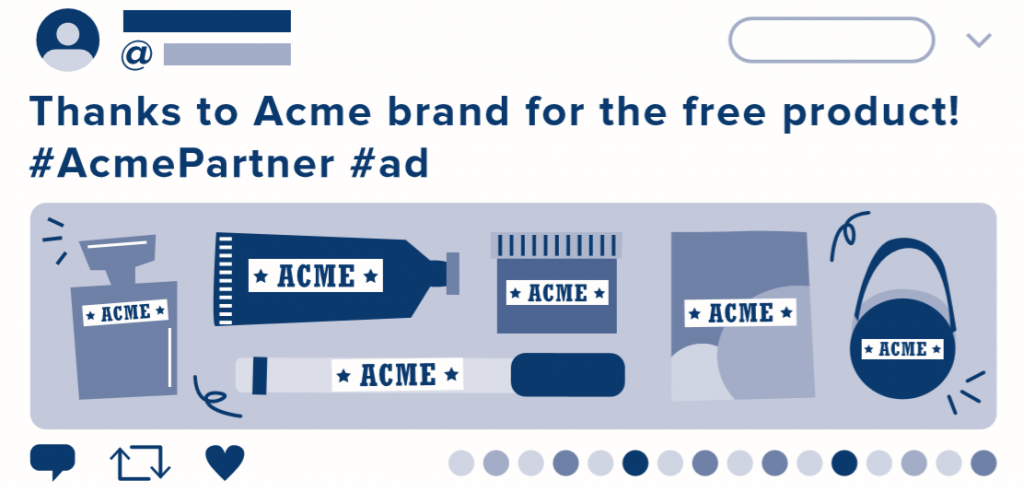Federal Trade Commission (FTC) release new simple and clear influencer’s guidelines about product sponsorship, and endorsements for social media influencers on 11/5/19. The goal of the publication is to stop deceptive ads, and the Endorsement Guides go into detail about how advertisers and endorsers can stay on the right side of the law.
If you endorse a product through social media, your endorsement message should make it obvious when you have a relationship (“material connection”) with the brand. A “material connection” to the brand includes a personal, family, or employment relationship or a financial relationship – such as the brand paying you or giving you free or discounted products or services.
Informing followers about these kinds of relationships is critical because it helps keep the recommendations honest and truthful, and it permits people to weigh the value of your endorsements.
Here is the summarized check list on the new FTC Influencer Guidelines.
Time needed: 2 minutes
Checklist to comply with FTC’s Influencer’s Guidelines
- Does the Influencer have any Financial, Employment, Personal or Family Relationship?
If any of the answer is YES, disclosure is required and proceed to # 2.
If not, no disclosure is required. - Ensure Disclosure placement is prominent on the message
Use simple and clear disclosure message and placed within the endorsement message itself.
Don’t mix your disclosure into a group of hashtags or links.
“Sponsored”, “Advertisement” and “Ad” is a clear disclosure message.
If you endorse a product through social media, your endorsement message should make it obvious when you have a relationship (“material connection”) with the brand. A “material connection” to the brand includes a personal, family, or employment relationship or a financial relationship – such as the brand paying you or giving you free or discounted products or services. For the latest about Influencers/Sponsorship and FTC’s recommendation, please visit FTC.gov/influencers

Trackbacks/Pingbacks